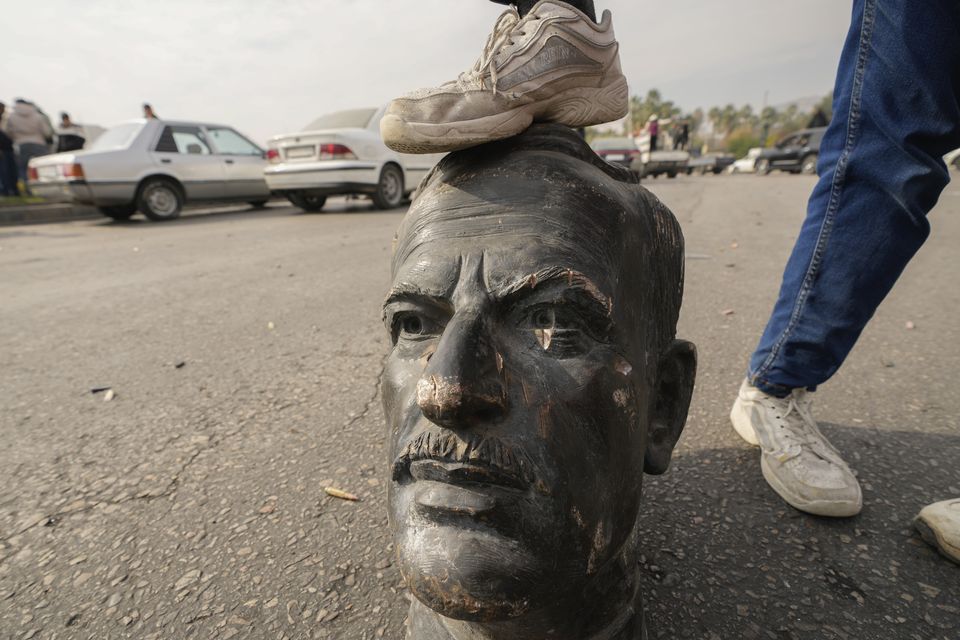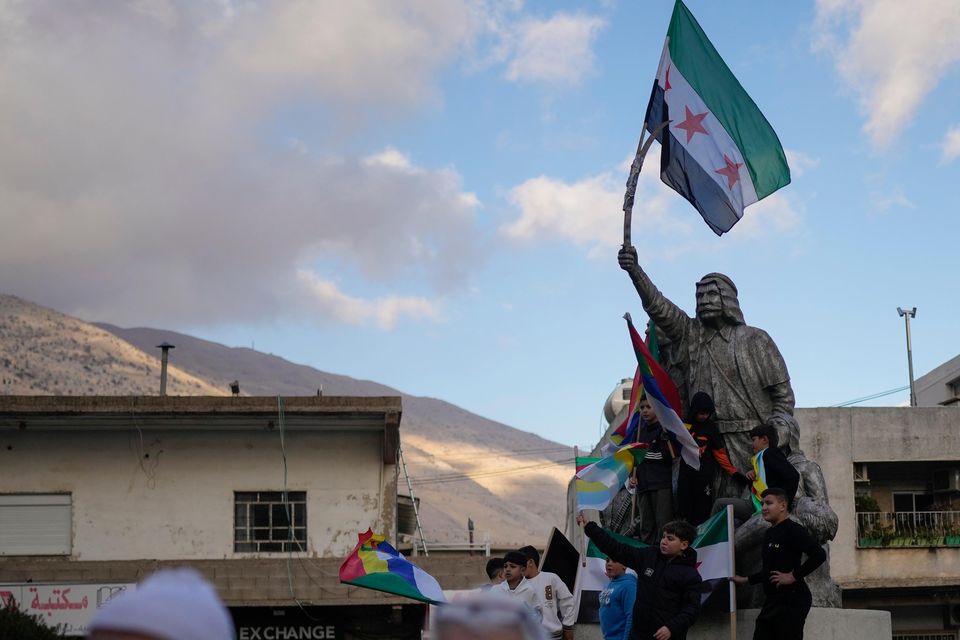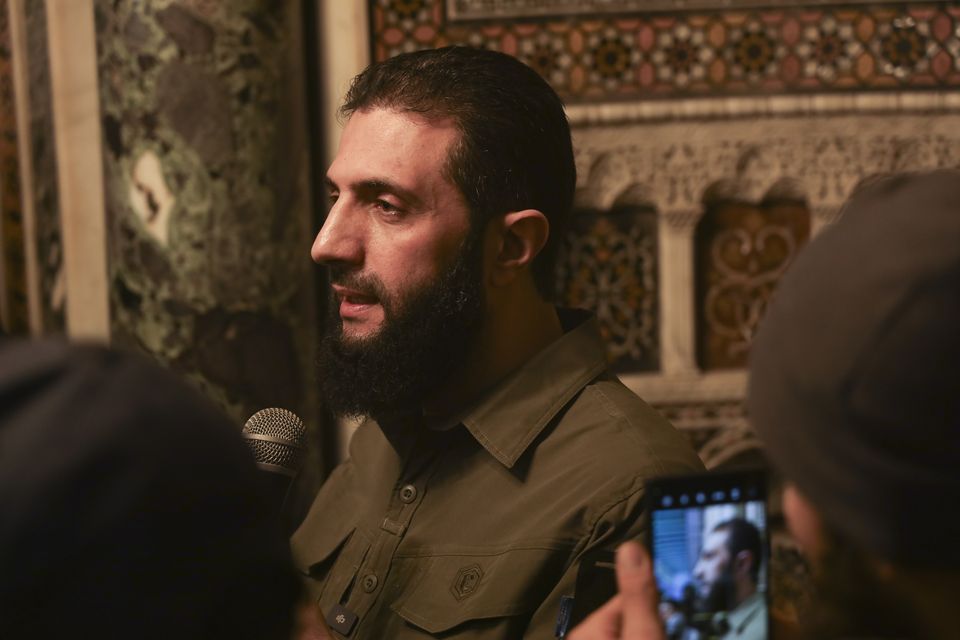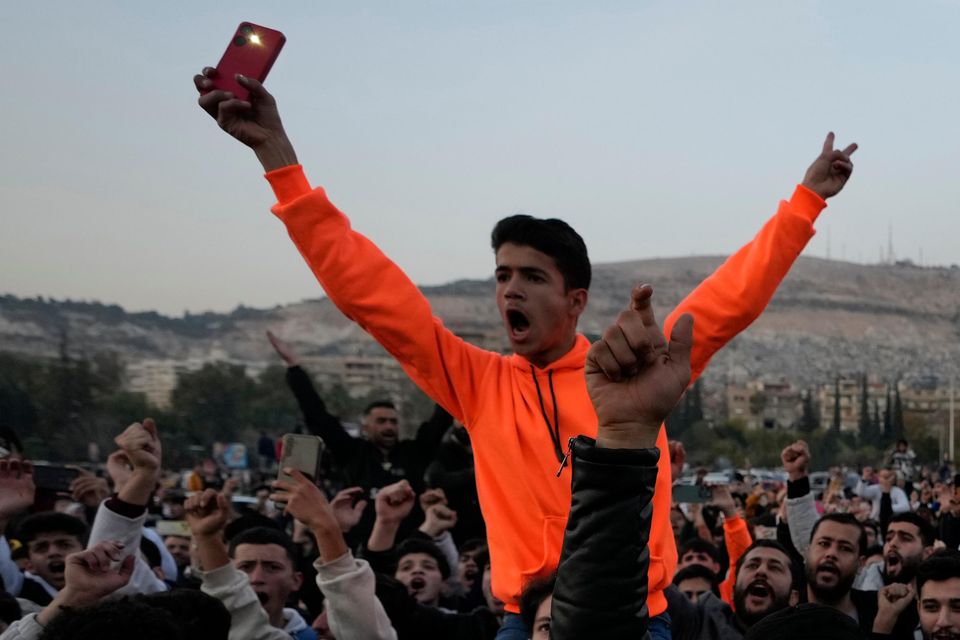Syria’s prime minister said that most cabinet ministers were back at work on Monday after rebels overthrew President Bashar Assad.
However, some state workers failed to return to their jobs and a United Nations official said the country’s public sector had come “to a complete and abrupt halt”.
Meanwhile, streams of refugees crossed back into Syria from neighbouring countries, hoping for a more peaceful future and looking for relatives who disappeared during Mr Assad’s brutal rule.
President Bashar Assad fled to Russia after rebels overthrew his regime (Hussein Malla/AP)
There were already signs of the difficulties ahead for the rebel alliance now in control of much of the country.
The alliance is led by a former senior al-Qaida militant, who severed ties with the extremist group years ago and has promised representative government and religious tolerance.
The rebel command said they would not tell women how to dress.
“It is strictly forbidden to interfere with women’s dress or impose any request related to their clothing or appearance, including requests for modesty,” the command said in a statement on social media.
Nearly two days after rebels entered the capital, some key government services had shut down after state workers ignored calls to go back to their jobs, the UN official said, causing issues at airports and borders and slowing the flow of humanitarian aid.
People attend a rally celebrating the fall of Syrian President Bashar Assad’s government. It comes as the prime minister said that Cabinet ministers were back at work (AP Photo/Matias Delacroix)
Rebel leader Ahmad al-Sharaa, who was known by his nom de guerre Abu Mohammed al-Golani, also met with Prime Minister Mohammad Ghazi Jalali for the first time.
Mr Jalali stayed in Syria when Mr Assad fled and has sought to project normalcy since.
“We are working so that the transitional period is quick and smooth,” he told Sky News Arabia TV on Monday, saying the security situation had already improved from the day before.
At the court of Justice in Damascus, which was stormed by the rebels to free detainees, Judge Khitam Haddad, an aide to the justice minister in the outgoing government, said that judges were ready to resume work quickly.
“We want to give everyone their rights,” Mr Haddad said outside the courthouse. “We want to build a new Syria and to keep the work, but with new methods.”
But a UN official said some government services had been paralysed as worried state employees stayed at home.
The public sector “has just come to a complete and abrupt halt,” said Adam Abdelmoula, UN resident and humanitarian co-ordinator for Syria, noting, for example, that an aid flight carrying urgently needed medical supplies had been put on hold after aviation employees abandoned their jobs.
Ahmad al-Sharaa’s rebel faction has promised representative government and religious tolerance, including announcing that they will not tell women how to dress (Omar Albam/AP)
“This is a country that has had one government for 53 years and then suddenly all of those who have been demonised by the public media are now in charge in the nation’s capital,” Mr Abdelmoula told The Associated Press.
“I think it will take a couple of days and a lot of assurance on the part of the armed groups for these people to return to work again.”
In a video shared on a rebel messaging channel, Mr al-Sharaa said: “You will see there are skills” among the rebels.
The Kremlin said Russia has granted political asylum to Mr Assad, a decision made by President Vladimir Putin.
Kremlin spokesperson Dmitry Peskov declined to comment on Mr Assad’s specific whereabouts and said Mr Putin did not plan to meet with him.
In public squares, many people were still celebrating. Civilian traffic resumed, but there was no public transport (Hussein Malla/PA)
Damascus was quiet Monday, with life slowly returning to normal, though most shops and public institutions were closed.
In public squares, some people were still celebrating. Civilian traffic resumed, but there was no public transport. Long lines formed in front of bakeries and other food stores.
There was little sign of any security presence though in some areas, small groups of armed men were stationed in the streets.



